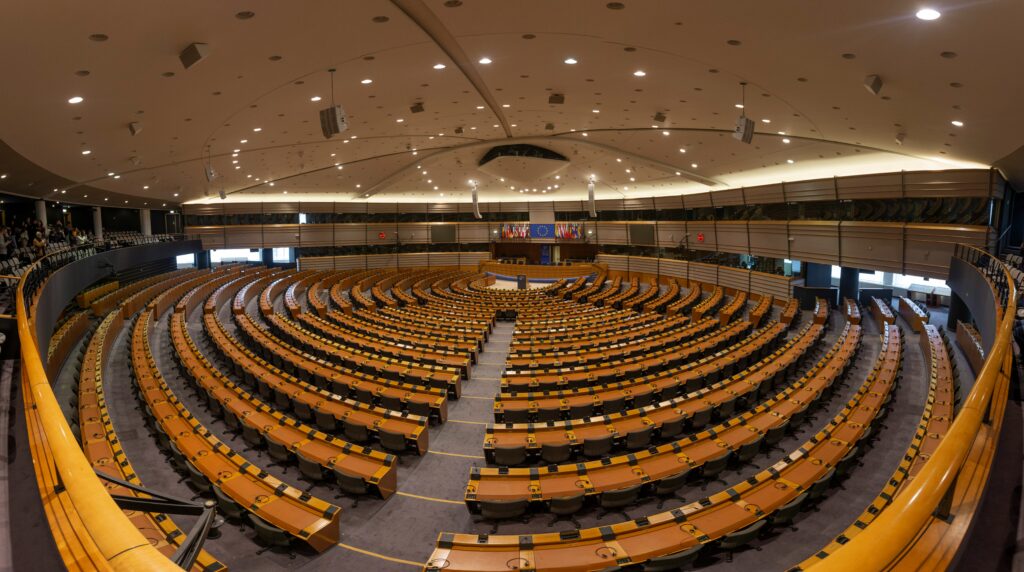The European Commission has decided to remove the AI Liability Directive from its 2025 work program. This decision comes after negotiations stalled. However, despite the Commission’s move, members of the European Parliament’s Internal Market and Consumer Protection Committee (IMCO) have voted to continue working on rules for AI product liability. They are determined to push forward, even as the European Commission had planned to drop the proposal.
A spokesperson for the European Parliament confirmed that coordinators from various political groups will work together to keep the AI Liability Directive on the agenda. But the Legal Affairs Committee (JURI), which leads the Parliament’s work on this directive, has not yet decided on the next steps.
Commission Remains Open to Future Discussions
The European Commission shared its 2025 work program last week, which stated that the AI Liability Directive would be removed from the program. The Commission explained that “no foreseeable agreement” had been reached. However, the Commission also made it clear that the proposal could be revisited if both the European Parliament and the EU Council are willing to develop it further in the coming year.
Although the Commission is no longer prioritizing the directive, it has not formally withdrawn the proposal.
This directive was introduced in 2022 alongside the AI Act. The AI Act aims to regulate artificial intelligence based on its potential risks to society. It also aims to modernize regulations and establish consistent consumer protections across the EU.
Divided Opinions in the European Parliament
Members of the European Parliament have expressed mixed views about the Commission’s decision to withdraw the directive. Some believe it is a mistake, while others feel it is the right move at this time.
Axel Voss, a German Member of the European Parliament (MEP) and the person responsible for guiding the AI Liability Directive through Parliament, called the Commission’s decision “a strategic mistake.” Voss believes that the rules are necessary and should be kept in the legislative agenda.
However, Andreas Schwab, also from Germany and a fellow member of the European People’s Party, supported pausing the directive. Schwab believes lawmakers should first observe how the AI Act, which is already taking effect this year, functions in practice. He suggested that the focus should be on the AI Act’s implementation and that lawmakers should review liability rules in two years.
On the other hand, members of the center-left groups have criticized the move. Luxembourg MEP Marc Angel, speaking on behalf of Italian MEP Brando Benifei, co-rapporteur of the AI Act, called the Commission’s decision “disappointing.”
Benifei emphasized the need for harmonized rules, which would ensure fairness for consumers when AI systems cause harm. “Harmonized rules would have created a level playing field,” he said.
Kim van Sparrentak, a Dutch MEP from the Greens group, also voiced concerns. She argued that withdrawing the liability directive showed a “lack of understanding” of why the rules were introduced. “The directive is not meant to bully companies,” she said. “It’s meant to protect SMEs and individuals.”
Mixed Reactions from the Tech Industry and Consumer Groups
Industry representatives and consumer advocacy groups remain divided over the necessity of the AI Liability Directive.
The Brussels tech lobby argues that liability issues are already addressed in the updated Product Liability Directive (PLD). However, consumer organizations believe additional protections are necessary. They argue that the existing rules do not fully cover the complexities introduced by AI systems.
A study by the European Parliament’s research service, presented in the Parliament’s Legal Affairs Committee (JURI) in January, highlighted potential gaps in the PLD. The study raised concerns that large language models, such as ChatGPT and Claude.ai, may not fall within the scope of the existing liability framework. These concerns have led many to advocate for the creation of a more specific AI liability framework to ensure consumers and businesses are better protected.
What’s Next for the Directive?
The future of the AI Liability Directive remains uncertain. While the European Commission has removed it from its 2025 work program, the European Parliament’s IMCO committee and other members continue to push for its inclusion. As discussions progress, it remains to be seen whether the directive will be revisited, modified, or permanently shelved.
The outcome of these discussions will be important not only for the tech industry but also for consumers across the EU. As AI technology continues to evolve, lawmakers will need to balance innovation with consumer protection. It is clear that while there are differences in opinion, the importance of establishing clear rules for AI liability is recognized across the political spectrum.
For more updates on AI and tech legislation, visit Euro News 24.
